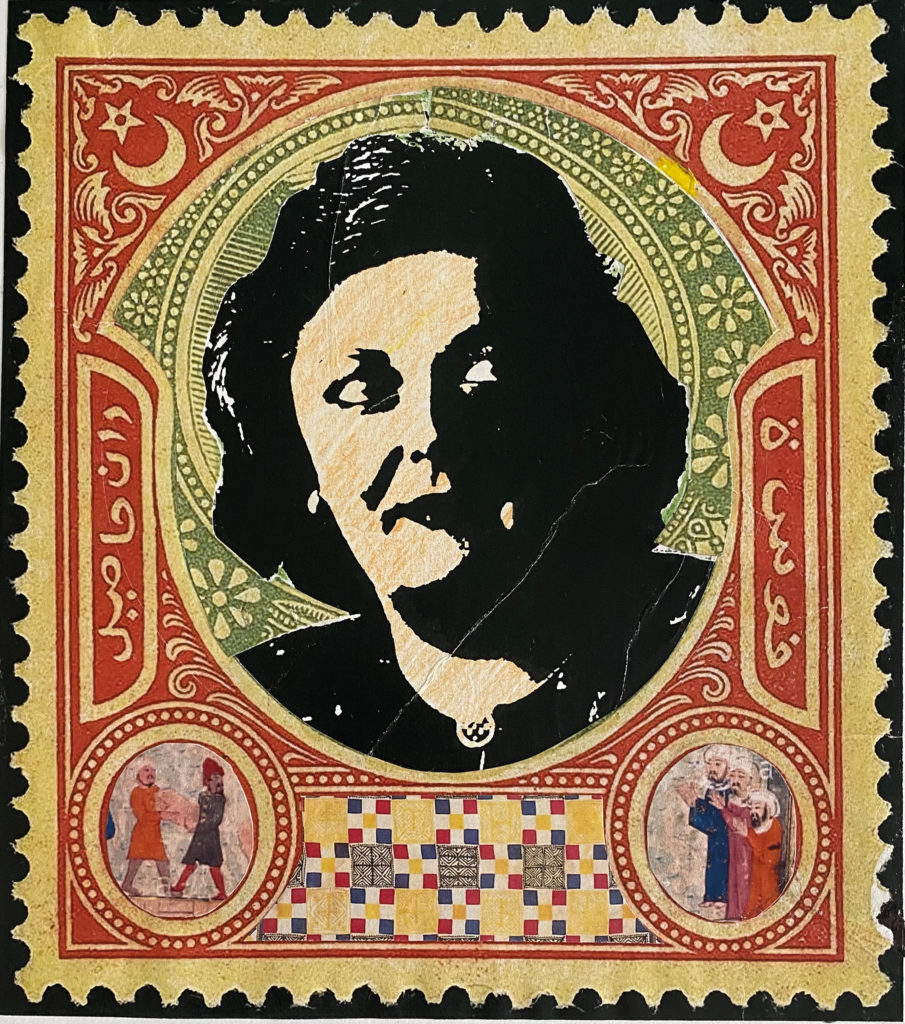Illustrated by Zafar Abbas Malik

1.
‘Ye, ye. Said Qi. Systi?’.
Those fortunate enough to have met Merryl Wyn Davies instantly noticed certain features of her towering personality. She was seldom seen, much like her favourite poet T S Eliot, without a cigarette in her hand; and subscribed to the Oscar Wilde dictum, that a cigarette is the most perfect of all the perfect pleasures. She was a habitual forty cigarettes – increased to sixty towards the end of her life – a day person; for her, smoking was an integral part of the very act of thinking and writing, a precursor to a sparkling conversation. And a conversation with Merryl was a noteworthy experience. She would always start with a compliment, move on to small talk, listen with considerable attention, and then ask a string of penetrating questions. You would be drawn, by her considerable wit and charm, into an elaborate and meaningful discussion. The conversation could easily lead to her Welsh origins; and the exchange would begin to simmer.
Merryl was born in 1949 in South Wales, more specifically Merthyr Tydfil, which she describes as ‘the very hub and centre of the universe’. She was from a family of mixed religious heritage. Her maternal grandfather was Catholic; her maternal grandmother was a Welsh Congregationalist. And they ran away to get married in an Anglican church. Her father, John Haydon Davies, was a hospital administrator; and her mother, Maisey Davies, worked at the local labour exchange (which later become ‘Job Centres’) as a Disablement Resettlement Officer. The parents divorced when Merryl was still very young; and she never heard from her father or knew much about him. She and her brother, Peter, were brought up by their mother. Later, Maisey became the Director of Merthyr Tydfil Institute for the Blind and edited the Institute’s Talking Newspaper, often rolling in both Merryl and Peter to write stories for the paper. Merryl was sent to the nearby Cwmbran High School, then located in the sixteenth-century Cwmbran Castle, from where she went to University College, London, to read social anthropology.
She was ‘forever Welsh’. ‘Wales’, as Merryl often said, ‘is the land of my fathers’, which is also the opening line of the official national anthem. There are hills and mountains and valleys aplenty, and waterfalls and impressive views. But the local speciality is horizontal rain with a devilish ability to enter up inside one’s protective outer garments. It is both, as Tom Jones sings, ‘the green green grass of home’, and ‘wild Wales’. As she explained in one of her columns in Critical Muslim,
The rest of this article is only available to subscribers.
Access our entire archive of 350+ articles from the world's leading writers on Islam.
Only £3.30/month, cancel anytime.
Already subscribed? Log in here.
Not convinced? Read this: why should I subscribe to Critical Muslim?